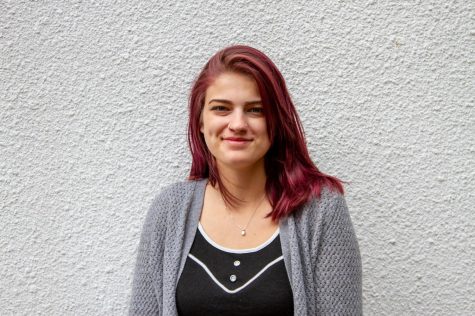Christine Blasey Ford was failed by the system
How to support survivors in the wake of Kavanaugh’s confirmation
I am angry. I am disappointed. This may sound dramatic, but I honestly believe that my country has not only failed me, but every other American woman.
Earlier this month, Brett Kavanaugh was confirmed by the Senate to a lifetime spot on the bench of the Supreme Court. Before his nomination to the highest court in the land, Kavanaugh was accused of sexual assault. His accuser, Christine Blasey Ford, a professor of psychology at Palo Alto University, said Kavanaugh sexually assaulted her when they were in high school.
People in the public eye, as well as in my personal life, have been saying that what Kavanaugh did or didn’t do in high school has nothing to do with what he is doing some 35 years later. That notion, to me, is preposterous. President Donald Trump said himself that people, particularly women, were “outraged at what happened to Kavanaugh.”
I, personally, am outraged at what happened to Ford. I am outraged at what happened to every single survivor of sexual assault in the wake of these hearings and the confirmation. Survivors have been told by our government time after time that they will not take them seriously.
When Trump won the election in 2016, despite numerous sexual misconduct allegations, survivors mourned. When that same alleged rapist nominated another alleged rapist to another branch of government, survivors mourned. When our senators watched the woman who claims Kavanaugh assaulted her stand before them and testify, they still gave him the job. Again, survivors mourned.
Unfortunately, though, Ford’s story isn’t surprising to me. According to the Rape, Abuse and Incest National Network, 23.1 percent of undergraduate women and 5.4 percent of undergraduate men experience some sort of sexual assault through force. Only 0.6 percent of rapists actually serve jail time, and between the Thursday of Kavanaugh’s hearing and the following Sunday, RAINN received an unprecedented amount of calls to their helpline — a 338 percent increase. For many survivors, these events were triggering, causing flashbacks and other symptoms of trauma.
Despite the trauma she endured and would endure from voicing her alleged experiences with sexual assault, Ford felt it was her civic duty to come forward and I feel it is my civic duty to go to the polls and vote in November. Just as she wanted her voice to be heard, I need mine to be heard. Ford was failed by the system and something needs to change.
Midterm elections are Nov. 6.
If you or a loved one has been impacted by recent traumatic events, please contact University Counseling Services here, or call the RAINN helpline at (800) 565-HOPE.
Kelley can be reached at kelleybm6766@uwec.edu.

Bridget Kelley is a fourth-year journalism student. Bridget enjoys hanging out with babies, coffee and oxford commas. If anyone has any gluten-free food suggestions, Bridget's inbox is open.
